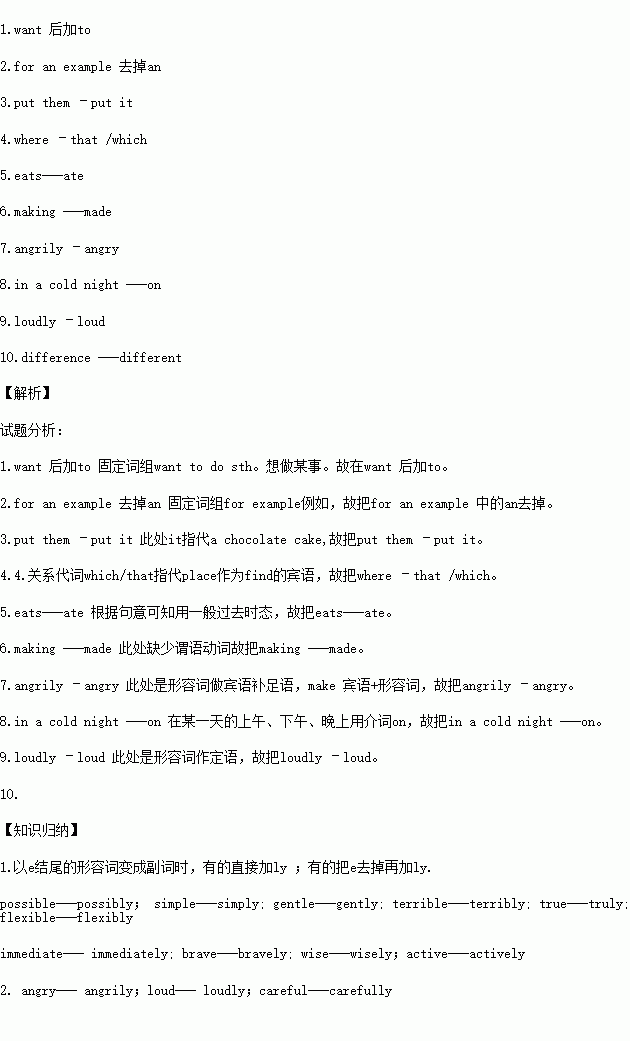题目内容
短文改错
假如英语课上老师要求同学们交换修改作文,请你修改你同桌写的一篇作文。文中共有10处语言错误,要求你在错误的地方增加、删除或修改某个单词。
增加:在缺词处加一个漏字符号(∧),在其下面写上该加的词。
删除:把多余的词用斜线(\)划掉。
修改:在错的词下划一横线,并在该词下面写上修改后的词。
注意:1. 每处错误及其修改均仅限一词;
2. 只允许修改10处,多者(从11处起)不记分。
My brother Tom was very selfish when he was a little boy. He didn't want share things with other people. For an example,when he bought a chocolate cake,he put them in a secret place where I could not find . Then he eats it all by himself. He never helped others. He said he was busy. In fact,a game of tennis making him very busy. He didn't care if something he did made people angrily. For instance,in a cold night he played strong and loudly music till 4 o'clock in the morning. But he is difference now. He often helps Grandma with housework,mom with cooking and his classmates with their lessons.


